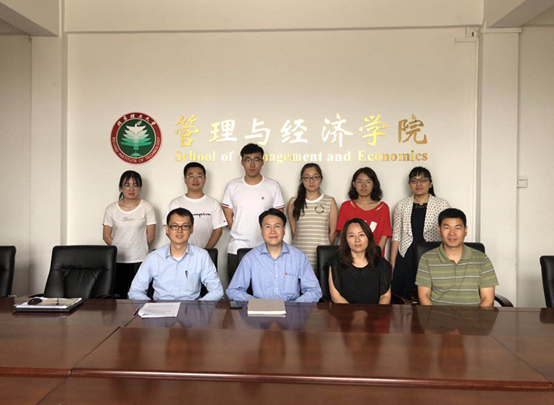At 10 am on July 5, 2018, Professor Tsan-Ming Choi (Jason) of the Hong Kong Polytechnic University was invited to give a report "Optimal Advertising Budget Allocation in Luxury Fashion Markets with Social Influences: A Mean-Variance Analysis" in Room 418 of the main building.

Tsan-Ming Choi is currently a professor of Fashion Business at the Hong Kong Polytechnic University. He is also a senior editor of Production and Operations Management (POM), Decision Sciences (DS), and IEEE Transactions on Systems, Man and Cybernetics - Systems, Information. Associate Editor of Journals, Sciences, and Transportation Research - Part E. His main research interests are in the areas of supply chain management and fashion business operation optimization. He has written/edited 16 research manuals and published more than 160 papers in journals such as POM and DS.
The report is based on the recent research results of Professor Choi. First of all, Professor Choi introduced the background of this study and pointed out that the problem of optimal allocation of advertising budget is an important issue in the luxury fashion industry. Next, the study set a luxury fashion company to serve a market of two interacting consumers and use the Mean-Variance (MV) framework to study optimal customer portfolio and budget allocation issues. Under the basic model that must spend all budgets, identify different scenarios and explore the MV effective frontier for each scenario. Studies have shown that not all budget allocations between the two groups of consumers are MV efficient, that is, the effective boundaries are not continuous; in the case of social impact, the diversification of customer portfolio does not always lead to smaller differences. This counterintuitive conclusion means that focusing on a single consumer group can reduce risk. In order to maximize expected profits, the best strategy is to allocate all advertising budgets to a group of consumers (ie, polarization strategies). Finally, Professor Choi answered questions from the teachers and classmates present, and everyone expressed their interest.





